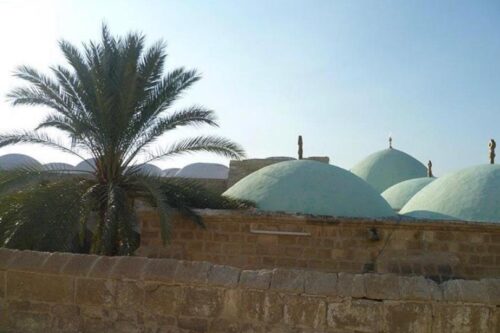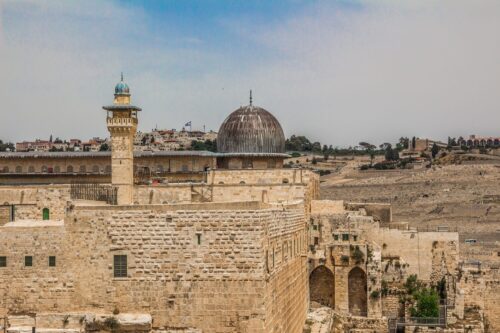When your school is also a bomb shelter: Education in the occupied Palestinian territories

Despite having left formal education a decade ago, a
classroom is still one of the most familiar places in the world to me and so
many of our childhood memories stem from our time in the classroom, in the
assembly hall or in the playground. It is not just what we learn in books, but
the experience of education in institutions and with our peers that has a
lasting impact on us. School or university should be a safe space for young
people, but for children in areas of conflict such as Palestine, this is not
always the case.
Successive generations of Palestinian children have learned
that their classrooms and homes are not any safer than the streets. They have
come to learn that their school uniforms will not shield them from bullets,
bombs or harassment.
Gaza
Prior to 2006, there may not have been mass bombardments in
Gaza, but it was still one of the most dangerous places in the world for
children. Children were routinely shot at by soldiers and settlers, and harmed
even when sitting in their classrooms, like 12 year old Huda Darwish in 2004 or
Hanan Abu Sitta who was killed by settlers whilst walking home from school.
Since 2006, with every bombardment that Gaza has faced, each
has led to schools being used as shelters, and also being mercilessly attacked.
In 2009, two UN schools that were sheltering people were bombed in one day
killing 40 civilians. Last year, seven different UN sites acting as shelters
were bombed, with high rates of civilian deaths and injuries. For the young
children that sought shelter in these classrooms, what had been touted as a
safe space, then became a place of death and violence.
“All the schools look similar and for the children in the
schools that were bombed…it is difficult for them to feel comfortable in this
classroom. I can see it in how they have changed. ” Teacher, Beach Camp
Over 255 schools were destroyed during the 2014 assault, and
many others damaged. When children returned for the new academic year, they
were in unfamiliar schools, or bombed classrooms. They returned to find empty
seats instead of many of their friends or teachers who had not survived the
violence.
The West Bank
In the occupied West Bank, for school children and students
even within their classrooms the occupation is present. Their windows look out
over the Separation Wall or watchtowers, and many pass checkpoints to and from
school. Many students have been arrested or harassed by soldiers or settlers
and children in certain areas need foreign volunteers to accompany them to
ensure their safety.
“They tear gassed our playground and then they came into the
school and were hitting the students and the teachers. They sometimes drive
past and say bad words to us too….” Student at an UNRWA boys school in
Jerusalem
Teaching and learning under occupation
Having spent a lot of time in Palestinian classrooms both in
the occupied territories and in the refugee camps of Lebanon, it is obvious
that teachers and students try to overcome the weight of fear, refugeehood and
insecurity through education but that their education inevitably must address
all of these things.
Classes on human rights raised the issue of why they as
children did not have the rights they were learning about and when asking
children to think creatively, the occupation weighed heavily on their minds.
They would draw pictures of the wall or warplanes and destruction, as well as
of Al Aqsa and Jerusalem. I have sat in classrooms with the children and listened
to them recite poetry or show me their pictures, and I have also had children
show me bullet holes in their playgrounds or the walls of their schools.
When visiting Gaza for Interpal, I spoke with teachers who
discussed the very real administrative difficulties they have running or teaching
in under-resourced schools but also how behavioural issues in children were
worsening and they were not equipped to deal with them. The education sector in
Palestine has been struggling with all the different pressures on it, and this
has impacted the quality of education for Palestinian children, and also meant
that the specific needs they have are not met.
Schools and classrooms need to be made safe spaces again
where Palestinian children can learn and develop. They should not feel the
weight of their poverty or disadvantage when they are in school, and this is
why supporting Palestinian schools and ensuring students get to school is so
important. The classroom can be a place where children feel ‘normal’, where they
interact with other children and where they can see beyond conflict.
By Yasmin Khan, Project Officer at Interpal
#PalestineFacts
Calculate your Zakat
Confused about how to calculate your Zakat? Try our simple-to-use calculator

![A Palestine protest in London on May 15th 2021 [Ehimetalor Akhere Unuabona / Unsplash]](http://www.interpal.org/wp-content/uploads/2024/08/ehimetalor-akhere-unuabona-33W7GNRkUA0-unsplash-500x333.jpg)
![Scenes of the destruction that befell the besieged city of Gaza after it was bombed by Israel in its war since October 7, 2023 [Emad El Byed / Unsplash]](http://www.interpal.org/wp-content/uploads/2024/08/emad-el-byed-uHMDmEa3TX4-unsplash-500x333.jpg)
![A Palestinian artist paints a mural drawing depicting the Dome of the Rock Mosque in Gaza city on July 25, 2017 [Ashraf Amra / ApaImages]](http://www.interpal.org/wp-content/uploads/2018/03/250717_ASH_00-9-500x333.jpg)

